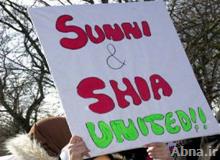MUMBAI, India (Ahlul Bayt News Agency) - Less than a week ahead of the Muslim month of Moharram, more than three dozen senior clerics and scholars met at Islam Gymkhana near Marine Lines on Wednesday to discuss ways to narrow the divide among Shias and Sunnis.
Organized by Wisdom Foundation secretary general and Islamic scholar Dr Zeenat Shaukat Ali, the Shia-Sunni dialogue was an effort to prevent sectarian clashes during Moharram.
"There are more commonalities than differences between the two sects," Ali said. "Despite minor ideological differences, the two sects must remain united if they want to win peace and defeat the forces of destabilization."
She said an international convention to promote Shia-Sunni dialogue would be held soon.
The delegates decided that a committee of clerics, scholars and activists would monitor the majlises, or commemorative meetings, during Moharram and ensure that speakers, mostly who visit the city from outside, do not make inflammatory speeches.
"Moharram's meetings should not hurt the feelings of followers of other sects. This message has to be spread widely," said senior Shia scholar Maulana Zaheer Abbas Rizvi.
Senior Sunni cleric Maulana Athar Ali, while appreciating the initiative to bring the two sects closer, said that no one wanted the people to abandon their ideology. "We are not asking people to leave their sects and get converted into other sects, but appealing them to chalk out a common minimum programme and work for bringing peace. They can bring peace only when they stay united and don't fight among themselves. Activist Saeed Khan cited examples of provocative banners and speeches and the dispute over Moharram processions which at times turn violent. "We have to be practical and counsel our youth not to heed rumours," suggested Khan.
/129
Organized by Wisdom Foundation secretary general and Islamic scholar Dr Zeenat Shaukat Ali, the Shia-Sunni dialogue was an effort to prevent sectarian clashes during Moharram.
"There are more commonalities than differences between the two sects," Ali said. "Despite minor ideological differences, the two sects must remain united if they want to win peace and defeat the forces of destabilization."
She said an international convention to promote Shia-Sunni dialogue would be held soon.
The delegates decided that a committee of clerics, scholars and activists would monitor the majlises, or commemorative meetings, during Moharram and ensure that speakers, mostly who visit the city from outside, do not make inflammatory speeches.
"Moharram's meetings should not hurt the feelings of followers of other sects. This message has to be spread widely," said senior Shia scholar Maulana Zaheer Abbas Rizvi.
Senior Sunni cleric Maulana Athar Ali, while appreciating the initiative to bring the two sects closer, said that no one wanted the people to abandon their ideology. "We are not asking people to leave their sects and get converted into other sects, but appealing them to chalk out a common minimum programme and work for bringing peace. They can bring peace only when they stay united and don't fight among themselves. Activist Saeed Khan cited examples of provocative banners and speeches and the dispute over Moharram processions which at times turn violent. "We have to be practical and counsel our youth not to heed rumours," suggested Khan.
/129

